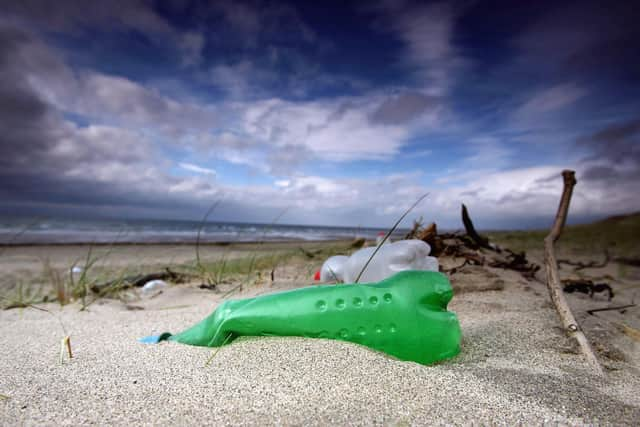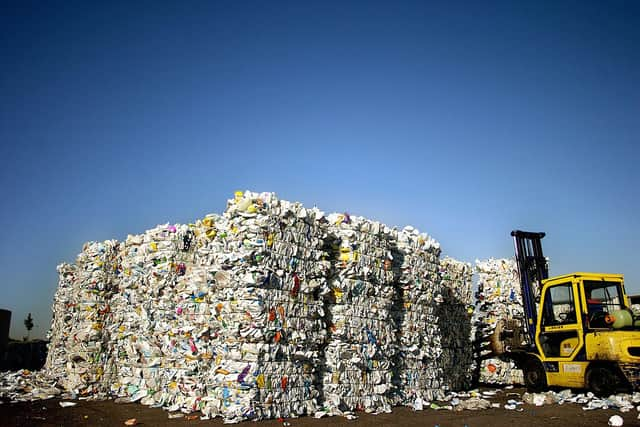DERRY JOURNAL Editorial: It's time to kick the plastic habit
and live on Freeview channel 276
Even the most strident atheist would agree. Sometimes Christmas has a way of bringing into sharp relief the rampant consumption that today defines the global economy.
Voracious consumerism and the destruction of the environment are often entwined in ways we don’t consider.
Advertisement
Hide AdAdvertisement
Hide AdAt COP28 most of the focus was on trying to persuade the international community to agree to wean itself off fossil fuels to prevent irreversible climate catastrophe.


Using green energy to fuel our economies is part of the solution. But what of the increasingly synthetic world we have become accustomed to living in?
Look around the room at the everyday items we rely on and which aren’t nailed to a wall or might require a removal crew to shift. How many are plastic? How many are not plastic might be a more appropriate question to ask.
In a 2017 study Roland Geyer and colleagues at the University of California estimated that around half of all the plastic ever produced was created in the previous 20 years.


Advertisement
Hide AdAdvertisement
Hide AdBetween 1950 and 2015 there was a 200 fold increase in global production.
Ninety per cent of plastic waste ends up in landfill and is a risk to the natural environment.
Are we going to continue to use petrochemicals to feed this seemingly insatiable, though only very recent, appetite? Our addiction to plastic is a latterday phenomenon. Progress has been made in cutting down but much more must be done.